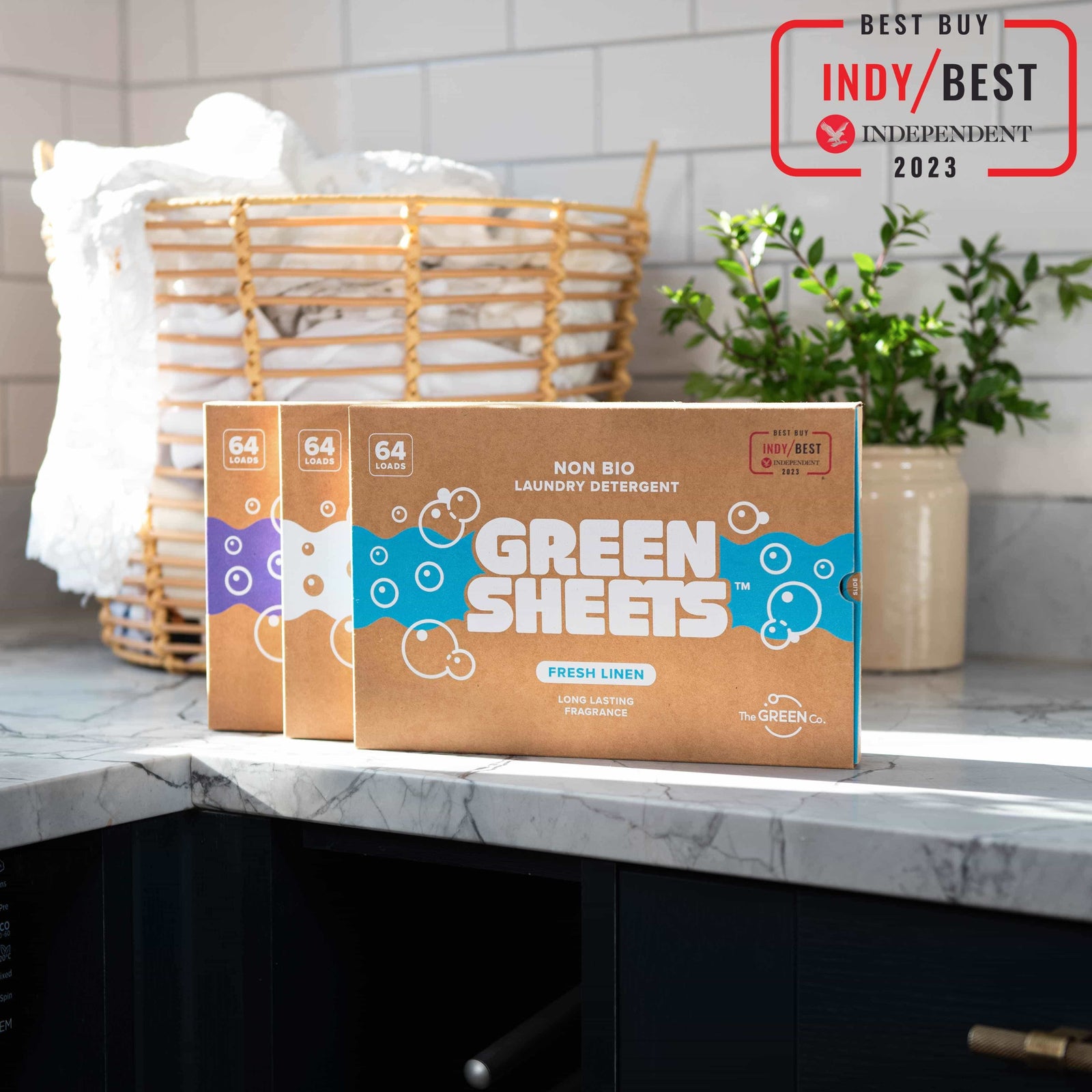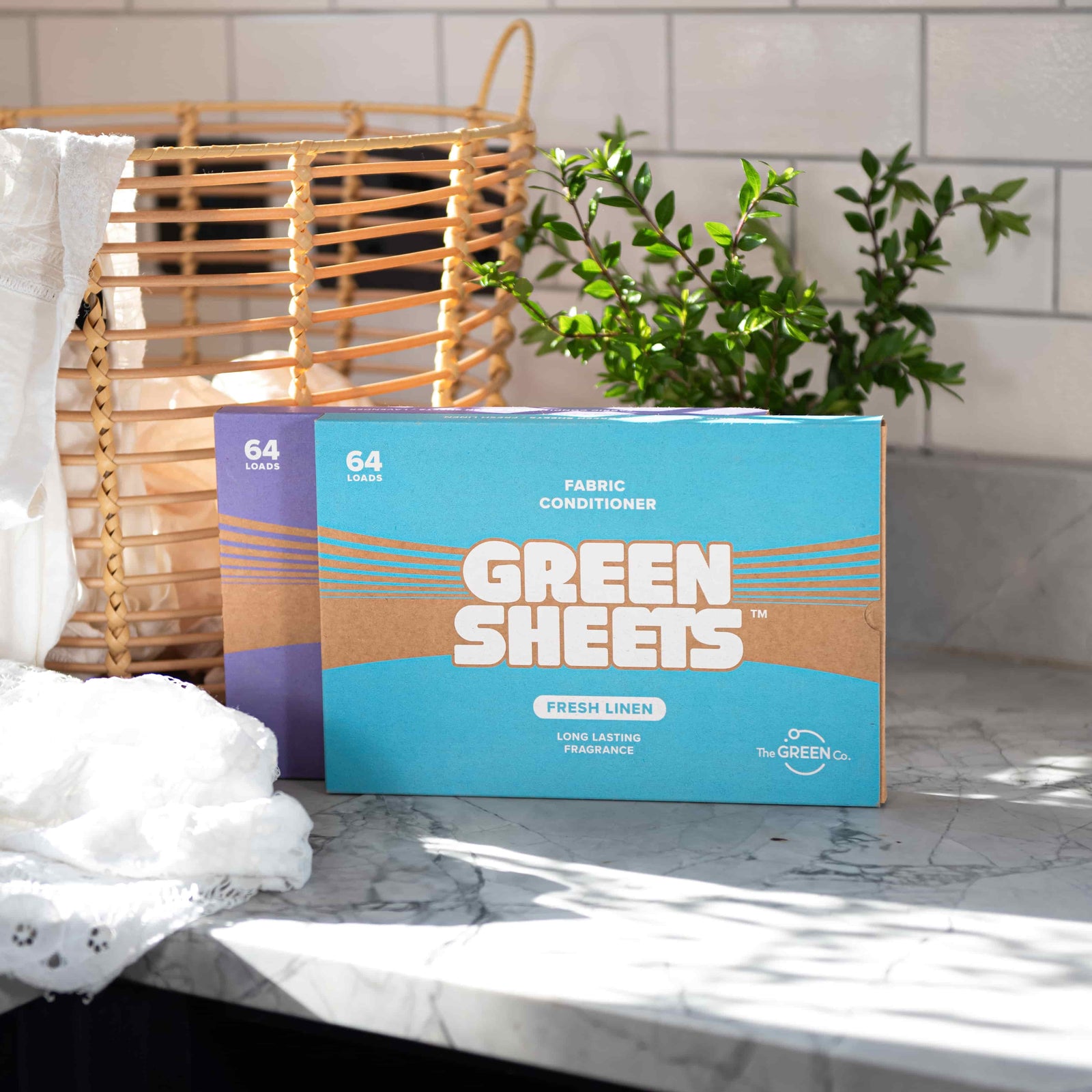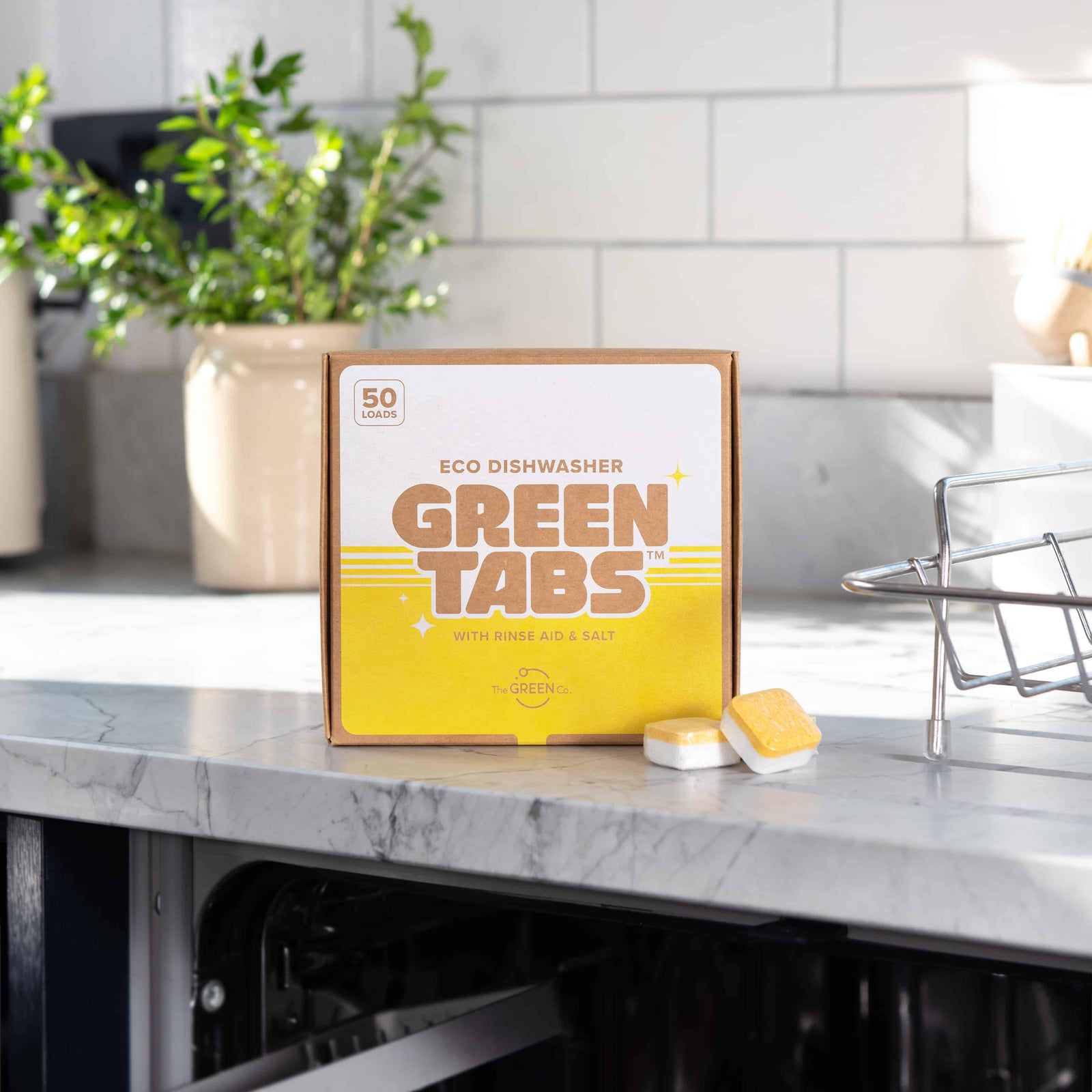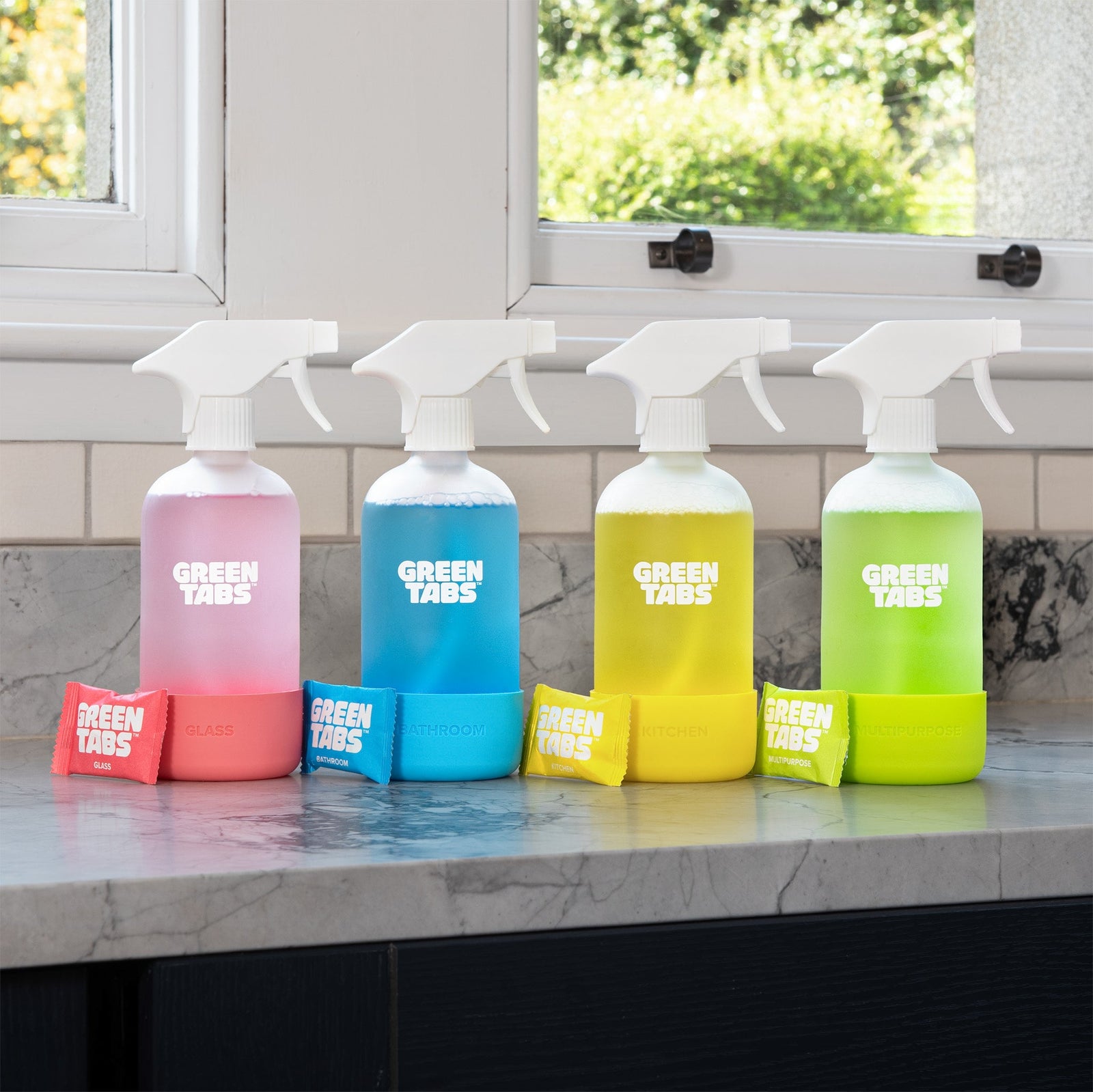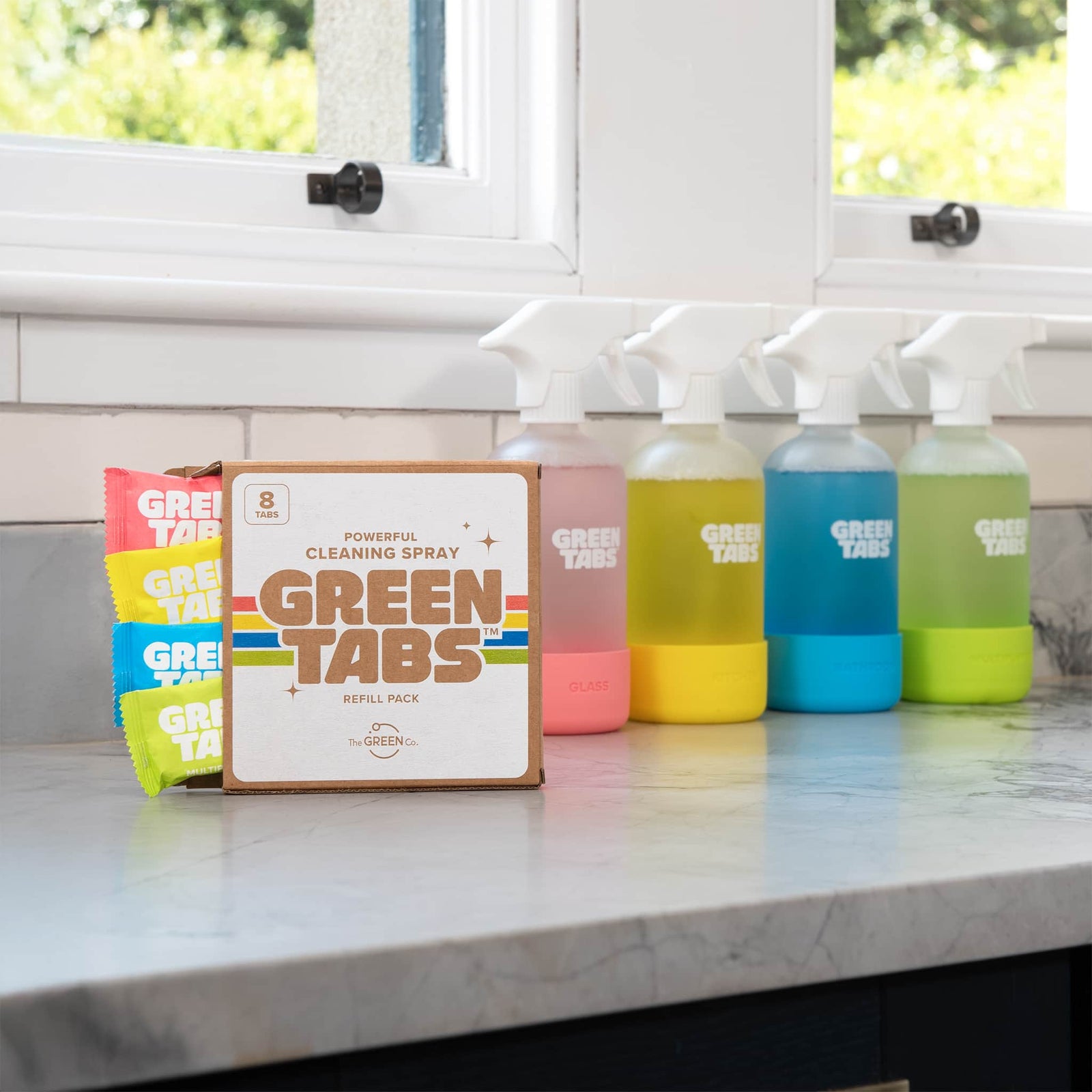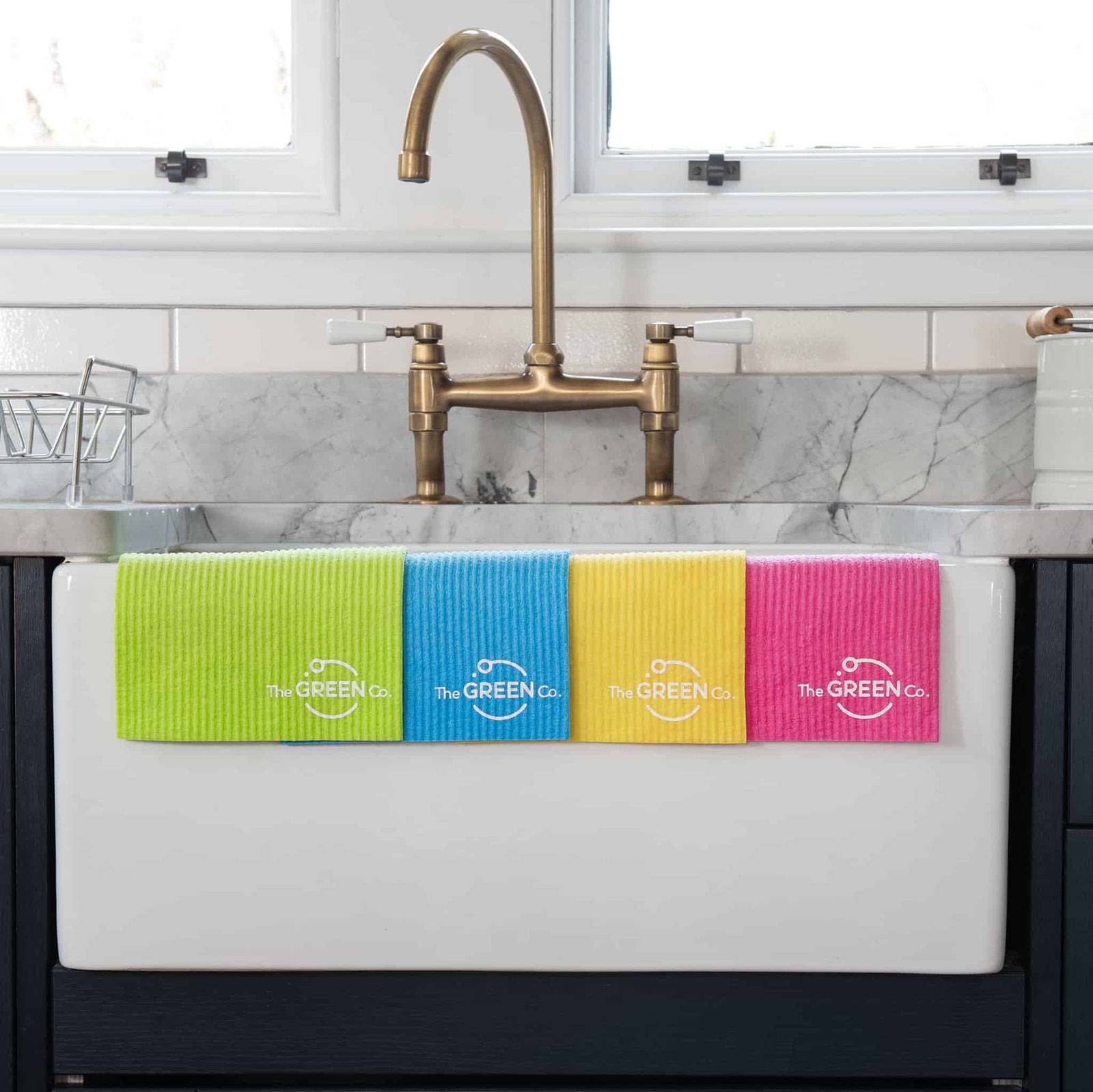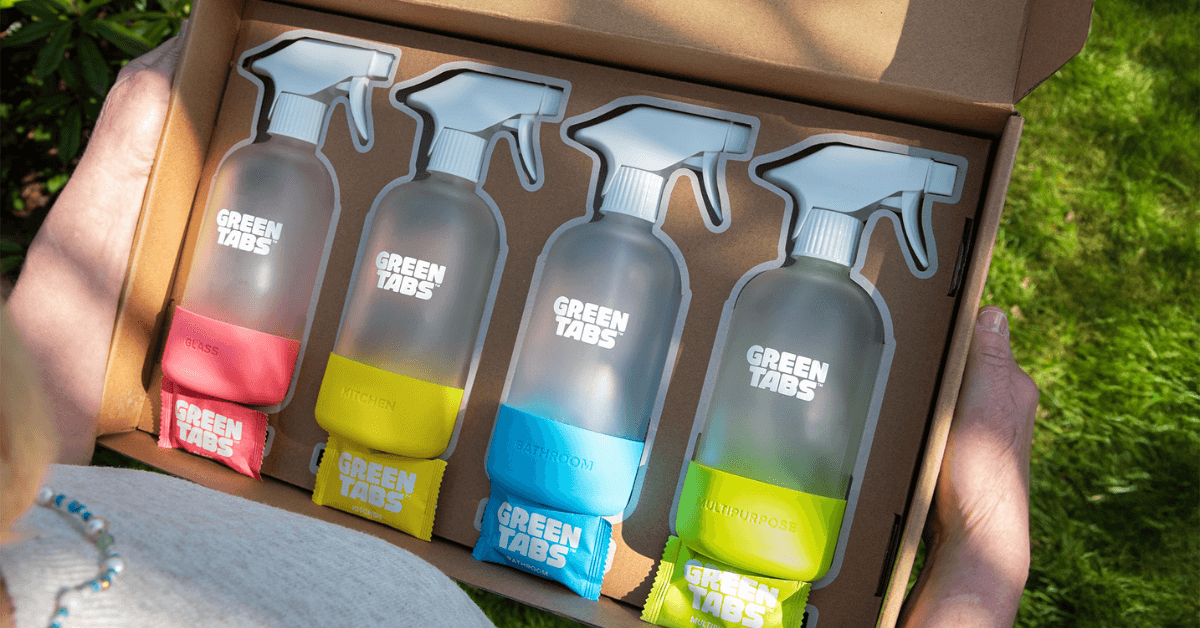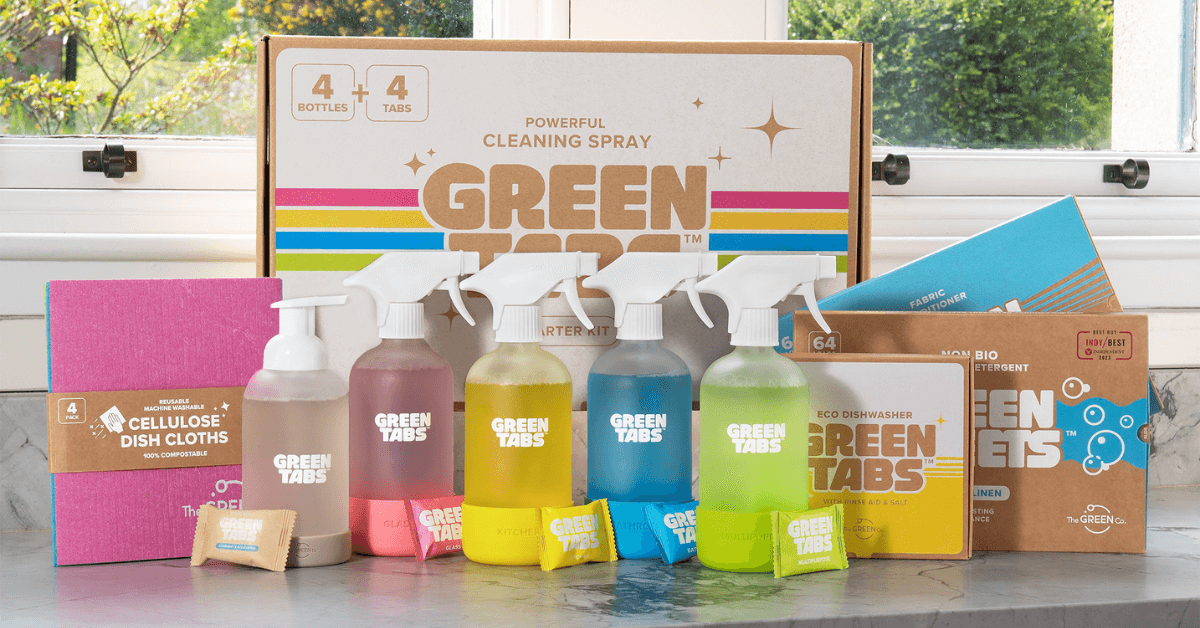Your dishwasher works hard to keep your dishes sparkling, but when was the last time you gave it a little TLC? A clean dishwasher means cleaner dishes, fewer repairs, and a longer lifespan for your machine. The best part? You don’t need harsh chemicals to keep it in top condition. Here’s how to clean your dishwasher the natural way.
Try our all-in-one Eco Dishwasher GreenTabs™ Today
Use This Dishwasher Cleaning Hack

Are you tired of chemical-laden dishwasher cleaners? If you're already getting the benefits of using a natural dishwashing detergent, why not extend the natural touch to cleaning your dishwasher?
Use our DIY eco-clean hack to keep your dishwasher in top condition:
Create dishwasher cleaning tablets using simple, eco-friendly ingredients. Just as there are natural dishwasher detergent alternatives, there are alternatives to synthetic cleaning products.
You can mix equal parts of baking soda and citric acid, adding a few drops of essential oil for a refreshing scent. Form small tablets and store them in a glass jar. Here’s how to do it:
Step 1: Gather Your Ingredients
-
Obtain baking soda, citric acid (you can find food-grade citric acid in supermarkets, health food stores, or online) and your preferred essential oil. Ensure the essential oil adds a scent you find pleasant.
-
Lavender or lemon essential oils offer antibacterial properties. Tea tree oil is also effective against bacteria.
Step 2: Measure Equal Parts
-
In a mixing bowl, measure equal parts of baking soda and citric acid. For example, if you use one cup of baking soda, use one cup of citric acid.
Step 3: Add Essential Oil
-
Introduce a few drops of essential oil to the mixture.
Step 4: Mix Thoroughly
-
Combine the ingredients thoroughly. Ensure an even distribution to guarantee each tablet carries the cleaning power.
Step 5: Form Small Tablets
-
Using a small mould or simply your hands, shape the mixture into small tablets. The size should be suitable for placing in the detergent compartment of your dishwasher.
Step 6: Allow to Dry
-
Place the formed tablets on a surface to dry. This step ensures the tablets harden and maintain their shape.
Step 7: Store in a Glass Jar
-
Once fully dried, transfer the tablets to a glass jar for storage. Glass is an eco-friendly option and prevents any potential reaction with the ingredients.
Step 8: Use Once a Month
-
When ready to use, simply place one tablet in the detergent compartment of your dishwasher before starting the wash cycle.
By following these steps, you can create a simple, effective, and eco-friendly solution to keep your dishwasher clean and fresh with every use.
Compare dishwasher tabs vs pods and liquids here
Why Natural Dishwasher Cleaning Matters
Many conventional dishwasher cleaners contain harsh chemicals that can leave behind residue, damage machine parts, and even impact the quality of your dishwashing water. A natural cleaning routine not only keeps your dishwasher running smoothly but also ensures a safer, eco-friendly home.
Using GreenTabs™ for a Naturally Clean Dishwasher
💚 Our eco dishwasher detergent tablets come with rinse aid and salt built in. They help to prevent limescale & grease buildup 💚 Biodegradable, plant-based formula 💚 No need for extra rinse aid or dishwasher salt 💚 Gentle on your machine & tough on grime
👉 Switch to effortless, eco-friendly cleaning today: Shop GreenTabs™
Can I Clean a Dishwasher with Vinegar?

Vinegar is an excellent natural cleaner. Pouring a cup of white vinegar into the bottom of your empty dishwasher and running a hot water cycle can effectively eliminate grease and grime.
While vinegar is a powerful natural cleaner, it's essential to consider both the pros and cons.
Pros:
-
Eco-Friendly: Vinegar is a natural, biodegradable cleaner, aligning with sustainable living.
-
Odour Neutraliser: It banishes any lingering odours, leaving your dishwasher smelling fresh.
Cons:
-
Acidic Nature: The acidity of vinegar might affect rubber components over time.
-
Potential Residue: Some users report a vinegar scent post-cleaning; however, this can be mitigated by running an additional rinse cycle.
Tips For Using Salt To Clean A Dishwasher
Harnessing the power of salt is another natural hack for dishwasher maintenance. Many dishwasher users often miss this step.
How Much Salt to Use
Adding salt to your dishwasher aids in preventing mineral build-up, ensuring optimal performance. Use about 1 cup of dishwasher salt and place it in the designated compartment.
Type of Salt and Common Mistakes
Opt for a specific dishwasher salt, as table salt contains additives that may harm your appliance. Common mistakes include using the wrong salt, too much salt or placing it in the wrong compartment.
Avoid these errors for an efficient, trouble-free clean. Dishwashers have a designated compartment for adding salt, typically located near the bottom.
Can you use table salt in a dishwasher?
Using table salt instead of dishwasher salt in your dishwasher can potentially harm your appliance due to the presence of additives.
Table salt often contains anti-caking agents and iodine, which can have adverse effects on the dishwasher's performance and components. Here's how it might harm your appliance:
-
Residue Buildup: Table salt additives may leave behind a residue in the dishwasher's water softening system, leading to clogs and reduced efficiency over time.
-
Corrosion: The additives in table salt could contribute to corrosion of metal parts within the dishwasher, such as the heating element or other internal components.
-
Scaling: The presence of impurities in table salt may contribute to scaling on the heating element and other surfaces, reducing the appliance's ability to heat water effectively and clean dishes.
Never worry about buying the right dishwasher salt again with our all in one Eco Dishwasher Greentabs™
How Often Should You Clean a Dishwasher?
✔ After each cycle: Wipe down seals and check the filter. ✔ Weekly: Run a vinegar rinse to keep grease at bay. ✔ Monthly: Give it a deep clean with vinegar and baking soda. ✔ Every 6 months: Check for limescale buildup and remove spray arms for a thorough clean.
Maintaining a clean dishwasher is crucial for its longevity and performance. After each use, wipe down the interior to remove any debris. For a deeper clean, perform the following:
-
Regular Deep Clean: Every month, run an empty dishwasher with a cup of vinegar on the top rack and baking soda on the bottom. This not only cleans but also deodorises. Don't forget to add your DIY dishwasher hack tablet into the detergent tray too for a thorough clean.
Top Dishwasher Care Tips
For optimal dishwasher care, consider the following best practices:
-
Scrape Off Excess Food: Scrape dishes to remove excess food particles before loading.
-
Check Spray Arms: Ensure spray arms are free of debris to guarantee thorough cleaning.
- It's best to avoid using a dishwasher without detergent
Incorporate these natural cleaning hacks and dishwasher care tips into your routine. Say goodbye to chemical residues and hello to a naturally clean and efficient dishwasher. Consider what is the best dish detergent for your dishwasher too.
For other parts of your kitchen, our eco friendly cleaning sprays offer a mess-free way to tackle surfaces without harsh chemicals.
Ready to clean your dishes the natural way?



